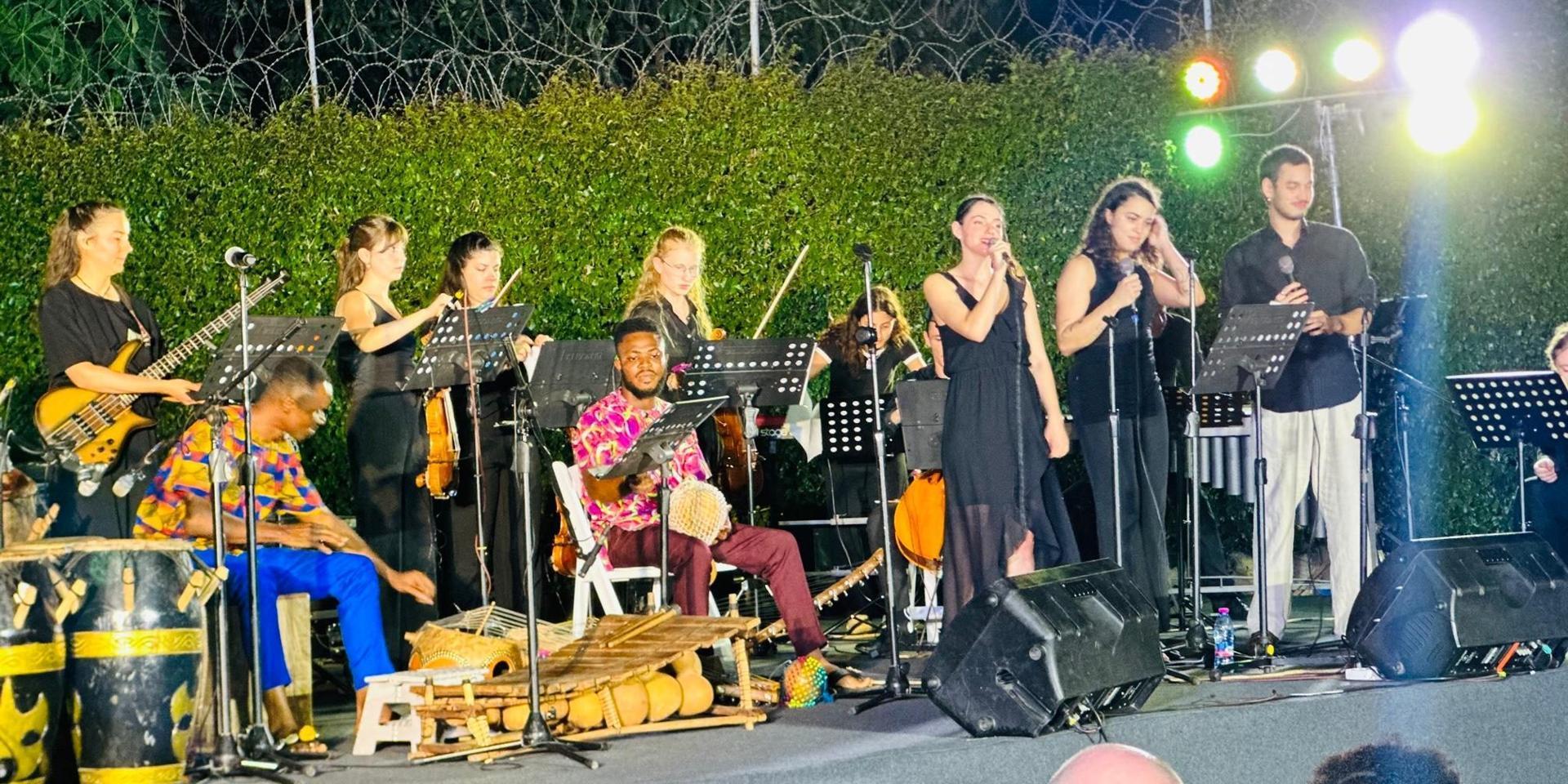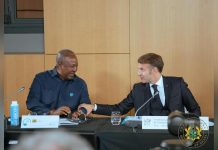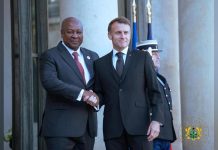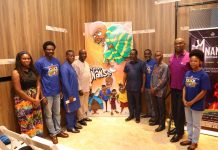Africa-Press – Ghana. The still ambience at the Swiss Embassy in Accra gave way to high musical energy on a night in October to always remember.
With well rehearsed musical notes, Switzerland’s HEMU Jazz Orchestra and Ghana’s Ayekoo Drummers converged in a breathtaking concert that transcended borders and bridged cultures through sound.
From the moment the drums began to speak, it was clear that this was more than just another diplomatic soirée.
It was an encounter, between jazz and tradition, between the Alps and the Atlantic, between discipline and improvisation.
The embassy’s courtyard transformed into a living canvas of sound, painted with tones that carried both the precision of Swiss orchestration and the pulse of Ghanaian heritage.
Mrs Simone Giger, Swiss Ambassador to Ghana, glowing with excitement as she welcomed the guests, set the tone for the evening with words that struck a chord as deeply as any instrument could.
“This concert is a conversation between instruments, between cultures, and between people,” she said, her voice resonating above the quiet hum of anticipation.
“Music transcends words, it reminds us of our shared humanity,” she emphasized.
Amb. Giger words were true. The event was indeed reflection of the enduring partnership between Switzerland and Ghana; one built not only on policy and trade, but on shared values of creativity, openness, and dialogue.
“Projects like this embody the spirit we strive for in all our partnerships,” she said, and that “When people meet through art and music, we rediscover our shared humanity.”
The Ayekoo Drummers opened the evening with a thunderous prelude that reverberated through the night like the heartbeat of Africa.
Their layered rhythms told stories louder than language, stories of celebration, resilience, and community.
The audience responded instinctively with feet tapping, nodding of heads, swaying of shoulders, and smiles spread across faces both familiar and foreign.
Then, under the graceful direction of Swiss percussionist and composer Thomas Dobler, the HEMU Jazz Orchestra took the stage.
Known for their innovative blend of classical discipline and jazz spontaneity, the ensemble carried the audience into a new realm where European harmonies danced seamlessly with African percussion.
When the opening strains of P.K. Yamoah’s timeless “Serwaa Akoto” floated through the air, sung beautifully by the Swiss vocalists, a gentle wave of nostalgia swept across the Ghanaian audience, who listened in delighted surprise as their cherished highlife classic was rendered with such warmth and authenticity.
The orchestra’s brass and woodwinds wove the melody with such authenticity that even those seated at the back began to hum softly.
A few could not resist clapping along, caught up in the familiar rhythm reimagined through a jazz lens.
C.K. Mann’s “Fa W’akuma Ma Me” followed; its highlife roots intact but adorned with a soulful jazz interpretation that seemed to freeze time itself.
Couples glanced at each other knowingly; elders nodded in appreciation. In that moment, the Swiss musicians ceased to be visitors, they became active participants in a Ghanaian story retold through melody.
The evening’s delightful surprise came with the iconic Ga “Kelewele” song, whose brassy orchestral swing and the vibrant percussion of the Ayekoo Drummers transformed the atmosphere from reverent to jubilant.
Laughter of appreciation erupted and hands clapped in sync as a few guests danced while even the most reserved diplomats swayed in their seats.
The highlight came when both ensembles performed together, a seamless dialogue between kpanlogo drums and jazz horns, between call-and-response rhythms and soaring solos.
The fusion was nothing short of magical; it was as if centuries of musical evolution had converged into a single, unbroken moment of harmony.
For Gaïane Gantier, one of the lead vocalists of the HEMU Jazz Orchestra, the collaboration carried profound meaning.
“We began learning these Ghanaian songs only in September,” she shared, her eyes gleaming with joy after the performance.
Ms Gantier added: “It’s been fascinating to explore another culture’s rhythms and stories, and to perform them here, with such warmth and connection. The energy from the audience was unbelievable.”
Her words reflected what the night truly represented: discovery, respect, and the kind of cultural conversation that needs no translation.
Maxine Vulliet, another lead vocalist of the HEMU Jazz Orchestra, described the night as a truly transformative experience, one where music became a bridge between worlds.
With eyes still gleaming from the performance, she spoke of the thrill of singing Ghanaian melodies on Ghanaian soil, surrounded by rhythms so alive that they seemed to pulse through the walls.
“It felt like a dialogue of hearts,” she said, her voice carrying both awe, gratitude and adventure.
She noted that, “Every beat, every note was shared energy. We weren’t just performing; we were connecting.”
As the final note lingered in the warm evening air of Accra, the audience rose in unison, applauding not just the music but the message.
The standing ovation lasted long after the instruments had quieted, echoing the evening’s unspoken truth; that when true music plays, borders dissolve.
What began as a concert ended as communion, a symphony of friendship between Ghana and Switzerland, between the past and the present, between rhythm and reason.
And as the lights dimmed and the night reclaimed its silence, the echo of drums and horns lingered, whispering in the wind.
For More News And Analysis About Ghana Follow Africa-Press







